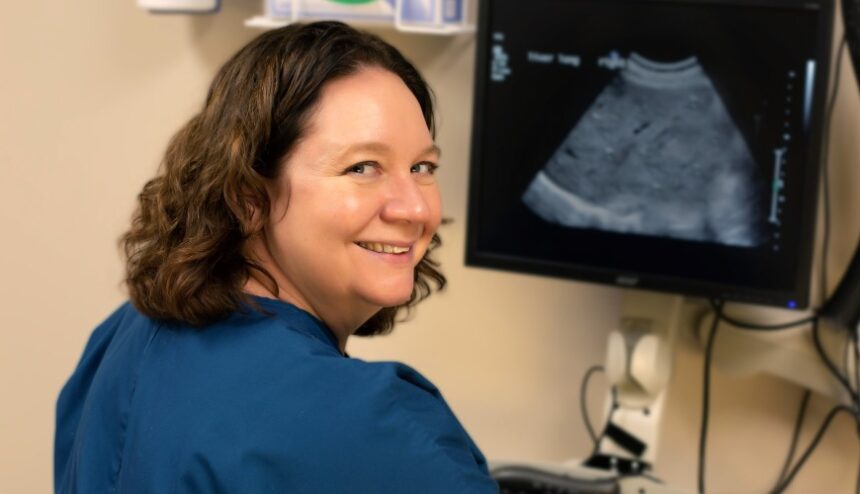By Billie Jo Grieve, MD, General Surgery
You lifted something heavy, and now it’s painful to flex your abdominal muscles. Is it a muscle strain, or is it a hernia? Both conditions have similar symptoms, but a hernia shows up as a bulge on the surface of the abdomen. With a hernia, you may also develop other symptoms, such as fever, chills, nausea, or vomiting. You may not be able to have a bowel movement, or you may have blood in your stool.
What is a hernia?
A hernia occurs when an organ or fatty tissue squeezes through a weak spot in the surrounding muscle or connective tissue. Hernias occur more often than most people realize, and hernia repair is one of the most common surgical procedures in the United States.
Some people choose to leave a minor hernia untreated. Although minor hernias are not immediately life-threatening, they do not go away on their own and can cause more pain or health problems if left untreated. Common types of hernias include inguinal (groin), incisional, hiatal, and umbilical.
Inguinal/Groin Hernia
The most common type of hernia is the inguinal or groin hernia—accounting for nearly 70% of all hernias. These occur when fat or the small intestine bulge through the lower abdominal muscles. If left untreated, the hernia can grow and become more painful. If part of your intestine becomes trapped in the abdominal wall, blood flow is restricted and causes the affected intestinal tissue to become infected or die.
Incisional Hernia
An incisional hernia occurs when tissue protrudes at the site of a prior surgical scar. An incisional hernia may get bigger over time, which could cause part of the intestine to become trapped in the protrusion. It needs to be treated if it is causing symptoms.
Hiatal Hernia
A hiatal hernia is more common in people over 50 years old. It occurs when the upper part of the stomach bulges through the diaphragm, causing heartburn or upper abdominal pain. This allows stomach contents to leak back into the esophagus, which brings a burning sensation. An x-ray of the upper digestive system detects a hiatal hernia. Acidic foods aggravate it, so low-acid-producing foods like green beans, carrots, bananas, and grains are better for heartburn until the hernia can be fixed.
Umbilical Hernia
The fourth common type is an umbilical hernia, which can occur in babies under six months old. It is visible as a bulge through the abdominal wall near the belly button and is especially prominent when the baby is crying. A pediatric umbilical hernia is the only kind that goes away on its own, typically by the time the child is a year old and the abdominal muscles have gotten stronger. If it does not go away, surgery may be needed to correct it. Typically, doctors will wait until the child is school-aged to see if it will go away on its own. Adult umbilical hernias do not go away without surgery and are fixed when they start to hurt.
Causes of Hernias
A hernia can develop quickly or over a long period of time. Abdominal muscle weakness in adults is a common cause of hernias. This could be due to age, chronic coughing, damage from an injury or surgery, or failure of the abdominal wall to close properly. Some factors that could lead to a hernia include pregnancy, constipation, fluid in the abdomen, sudden weight gain, surgery in the area, or persistent coughing or sneezing.
You may not even know you have a hernia unless it shows up during a medical exam for an unrelated problem. Tests or x-rays are done based on the type of hernia, and treatment options depend on its size and the severity of the symptoms. It is important to get a doctor’s opinion on whether you should monitor the hernia for changes or possible issues or if other treatment is recommended, such as surgically repairing the abdominal wall. Most surgeries to repair hernias are laparoscopic, which uses small incisions and means a shorter recovery time. Learn more about hernia surgery at Glacial Ridge Center for Surgical Care.
Reduce the Risk of Hernia
You cannot always prevent a hernia, but you can reduce your risk with healthy lifestyle choices—maintain a healthy body weight, avoid straining while going to the bathroom, quit smoking to reduce chronic coughing, and see a doctor if you develop a persistent cough.
You do not have to live with the discomfort or pain of a hernia. As with all medical conditions, it is best to get a doctor’s opinion and consider the treatment options that would work best for you.


